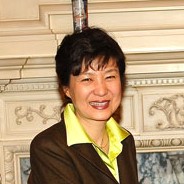SEOUL, South Korea -- In the months leading up to South Korea’s April 11 parliamentary elections, it looked like the liberal opposition was poised for an easy victory driven by voters who were sick of corruption and income inequality and in search of something new. To the opposition’s surprise, voters instead bolstered the majority of the ruling New Frontier Party (NFP), signifying a shift back to conservative tendencies in the country’s electorate.
The NFP won 152 out of 300 seats, giving it a parliamentary majority, while the opposition Democratic United Party (DUP) came away with 127. Though most observers had expected the opposition to win a small majority, voters were apparently drawn to South Korea’s most popular politician, conservative icon Park Geun-hye of the NFP. Park emerged as the undeniable victor of the election and now stands a strong chance of becoming the country’s next leader in December’s presidential election.
The NFP’s victory has immediate policy implications: The opposition had pledged that if victorious, it would renegotiate military and trade commitments with the U.S., including the recently implemented bilateral free trade agreement, and suspend the building of a large navy base on Jeju Island. The free trade agreement has been criticized by South Korean working-class groups as well as by business interests that argue it will harm the ability of small and medium-sized firms to compete with large American companies. The naval base on Jeju has met resistance from locals who claim that construction has damaged the local ecology. The ruling party will now ensure that these policy decisions stand pat.

